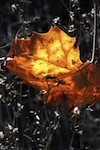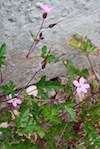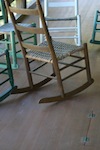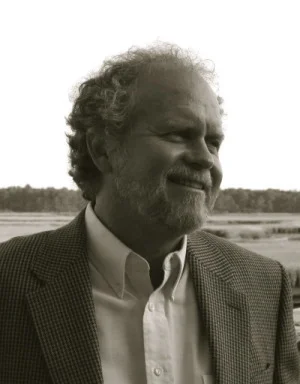The dreams and debates of modernity, cascading as they are into postmodernity, are always at the heart of the human condition. It cannot be otherwise, as we are never more and never less than sons of Adam and daughters of Eve. So we take our place as folks who long to love and to be loved. Percy understood that with an unusual eye: historically, philosophically, psychologically, politically, and, yes, theologically, seeing the complexity for Everyman and Everywoman. We want love, yet we also know how hard it is to love and to be loved.
 At home, I sifted through condolence cards and made half-hearted attempts to focus on good things. I wrote and I cooked; I brought flowers into the house. On seventy-degree days, I wandered around our Nashville neighborhood like someone’s lost pet, trying to convince my skin to absorb the beauty of my favorite season. I bought smooth white pumpkins and sugar-dusted loaves of banana bread, anything to bring my senses back to life. For weeks, all I could seem to see was the horrible beige of those hospital walls.
At home, I sifted through condolence cards and made half-hearted attempts to focus on good things. I wrote and I cooked; I brought flowers into the house. On seventy-degree days, I wandered around our Nashville neighborhood like someone’s lost pet, trying to convince my skin to absorb the beauty of my favorite season. I bought smooth white pumpkins and sugar-dusted loaves of banana bread, anything to bring my senses back to life. For weeks, all I could seem to see was the horrible beige of those hospital walls. At home, I sifted through condolence cards and made half-hearted attempts to focus on good things. I wrote and I cooked; I brought flowers into the house. On seventy-degree days, I wandered around our Nashville neighborhood like someone’s lost pet, trying to convince my skin to absorb the beauty of my favorite season. I bought smooth white pumpkins and sugar-dusted loaves of banana bread, anything to bring my senses back to life. For weeks, all I could seem to see was the horrible beige of those hospital walls.
At home, I sifted through condolence cards and made half-hearted attempts to focus on good things. I wrote and I cooked; I brought flowers into the house. On seventy-degree days, I wandered around our Nashville neighborhood like someone’s lost pet, trying to convince my skin to absorb the beauty of my favorite season. I bought smooth white pumpkins and sugar-dusted loaves of banana bread, anything to bring my senses back to life. For weeks, all I could seem to see was the horrible beige of those hospital walls.































